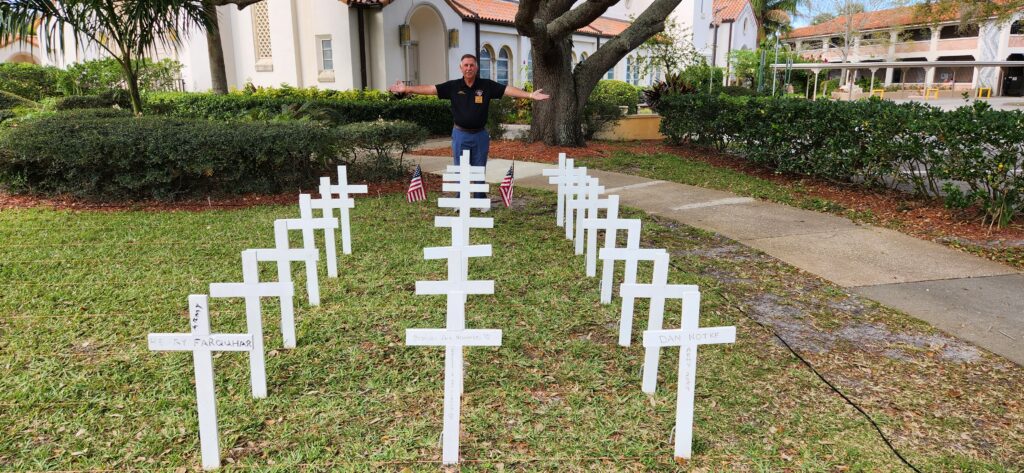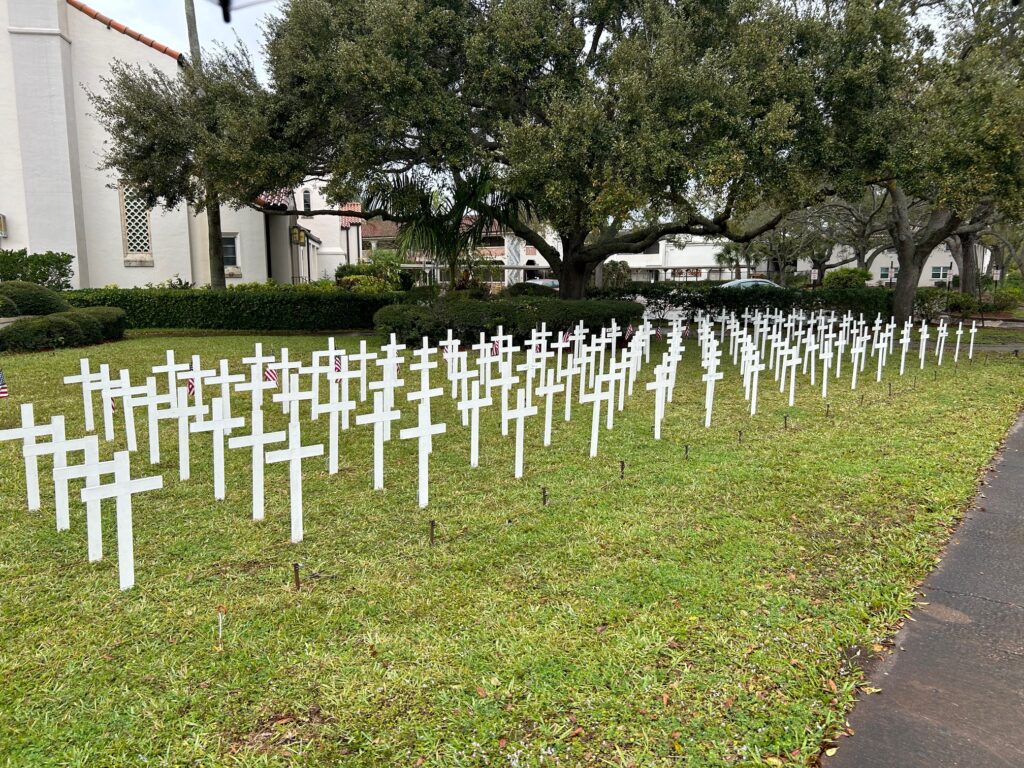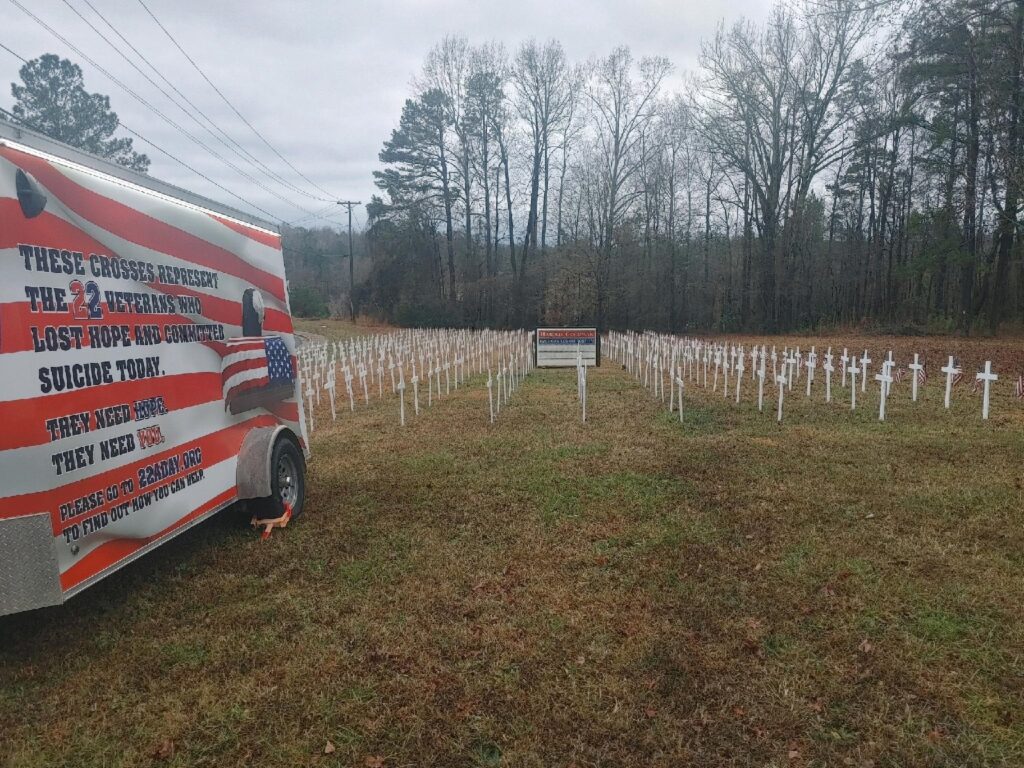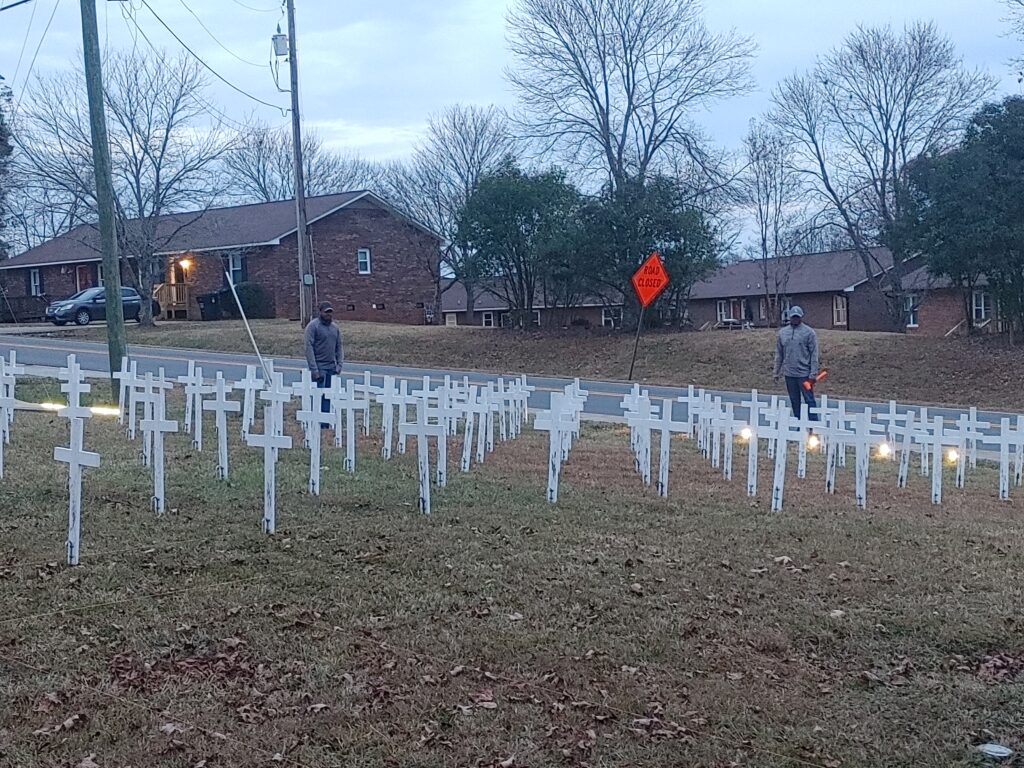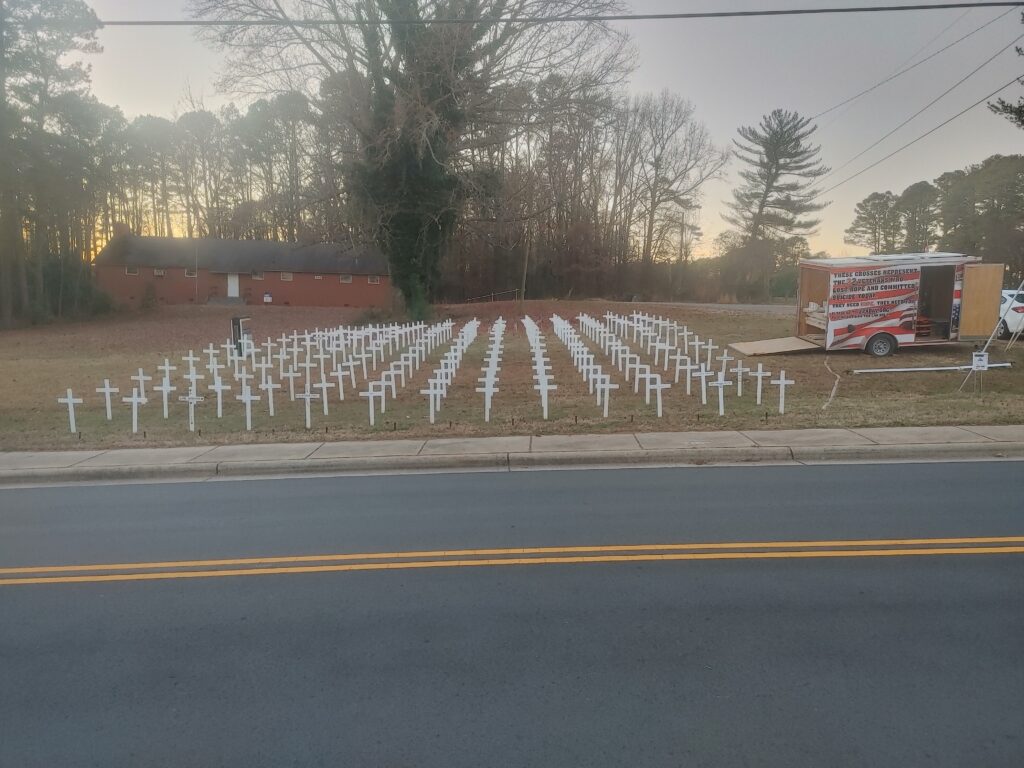We went to Albion, Michigan on 5 July to pack up everything and take it back home to prepare for the next location, Grand Rapids.

660 crosses is way too many. While the true number of veterans who commit suicide each day can only be estimated, and estimates go anywhere from 16 a day to over 50, there are still plenty of ways we can help make that number go down. Some of them are as easy as talking to any vet you know and asking them how they are doing. Congressional representatives don’t know how constituents think about the issues since they have so many people in there districts they can’t know them all. A simple note from each of you will help them decide what to do with the VA’s annual budget and make other veteran related decisions. You may not think your opinion matters, but when it is coupled with the notes from many others, it adds up enough to help your representatives make better choices. I once had a state senator tell us that his decision on a bill was made up because on 14 people wrote to him about what to do and most wanted him to vote yes, so he did. 14 people ended up speaking for an entire state!
Our next stop is Grand Rapids. We will setting up on land owned by Greenleaf Landscaping Supply Company, 231 N Park ST NE, Grand Rapids, MI 49544. We’ll be within sight of US 131, just south of the baseball stadium. American Legion Post 2 is hosting us and will be in charge of placing the crosses each day at noon. See you there?












